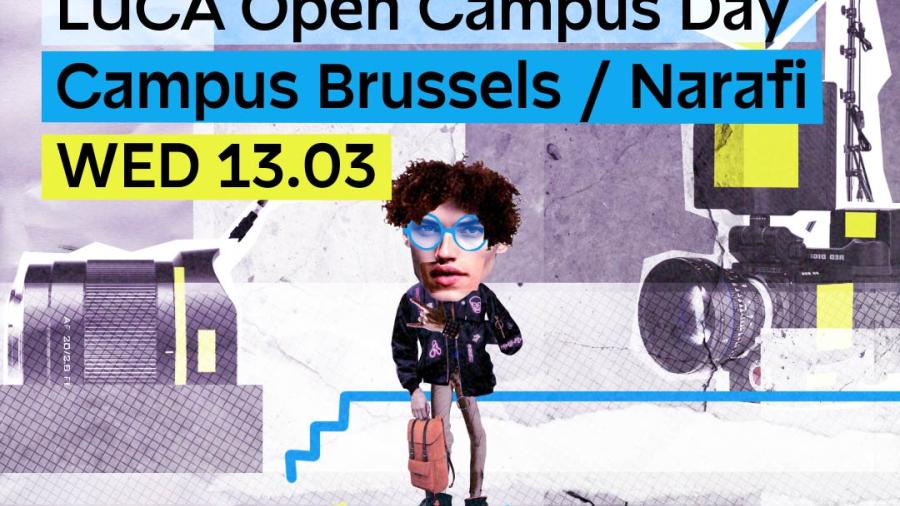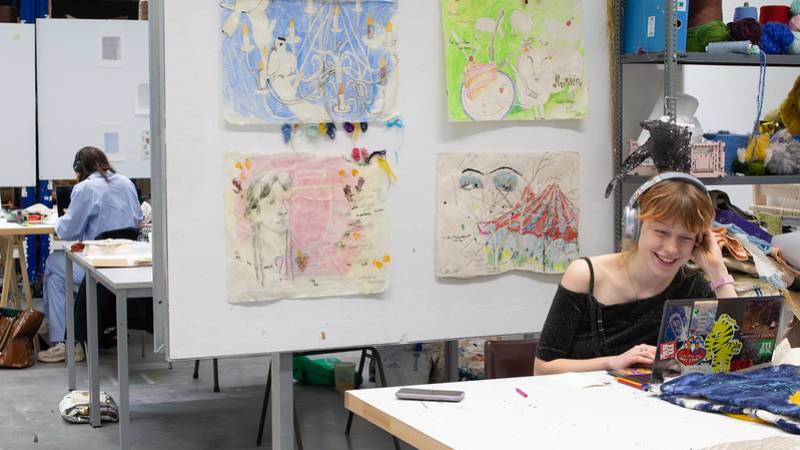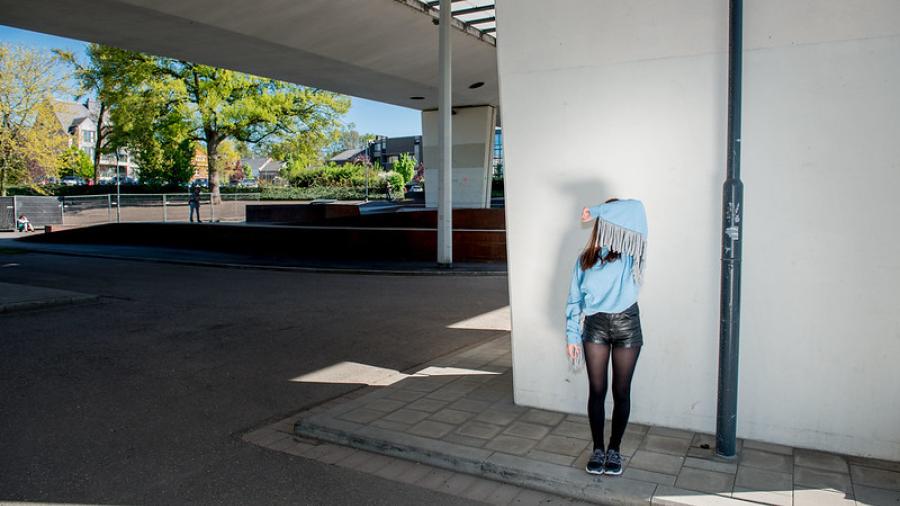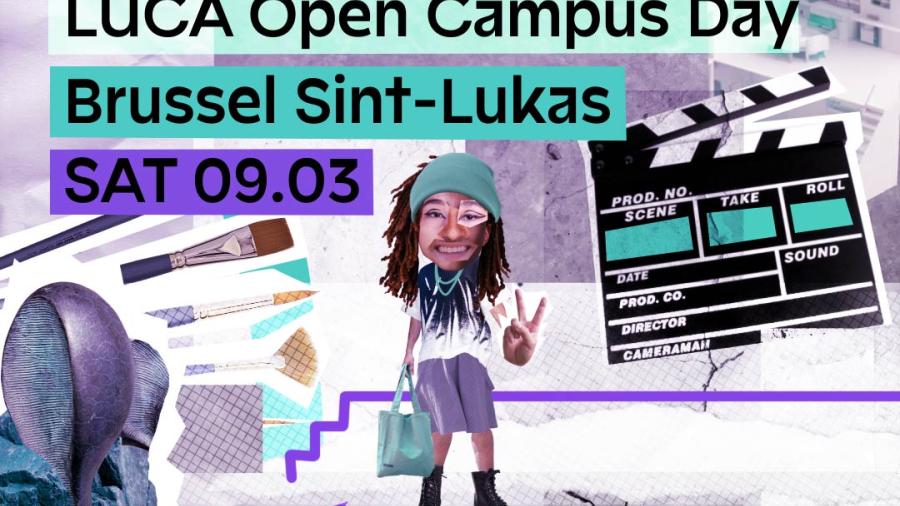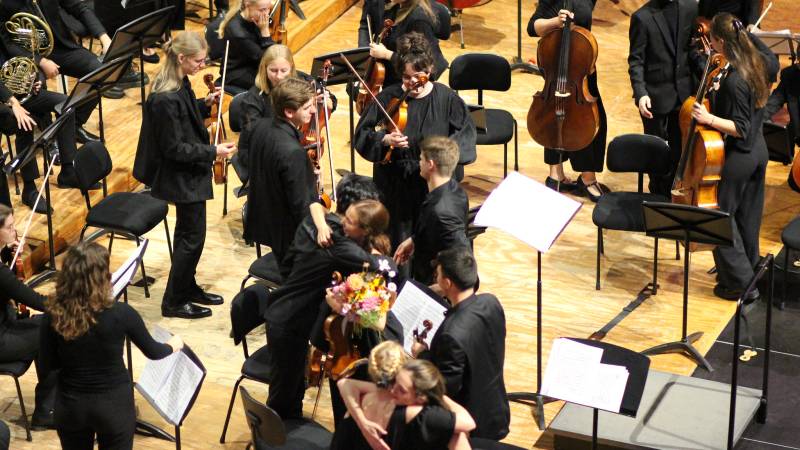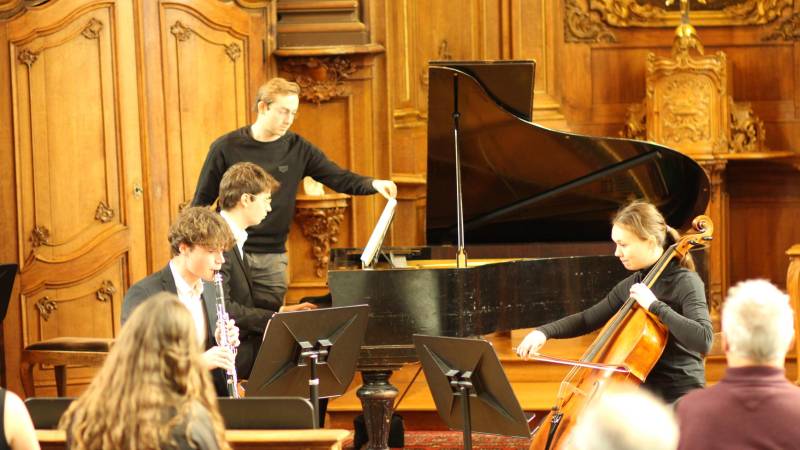
LUCA campus Sint-Lukas Brussels & CINEMATEK Brussels
FAST45 Futures (Un)Known
Close your eyes. Picture the arts in higher education in 2045. Imagine multiple futures, how working practices will change, while dealing with global uncertainty. Is it possible to map unknown futures today? What structures do we need to create the sustainable and desirable futures our art students deserve?
FAST45 Futures (Un)known invites higher arts education leaders, educators, creative practitioners, researchers, artists, students, cultural workers, and policymakers to actively participate in an illuminating two-day programme of futures-thinking activities from 6 - 7 December 2023 in Brussels, Belgium. This event is hosted by LUCA School of Arts & LUCA campus Sint-Lukas, at the same campus and BOZAR.

Discover and respond to futures scenarios, findings and tools co-created as part of the EU-funded project FAST45 - Futures Art School Trends in 2045. Engage in policy debate and start constructing a roadmap that will empower higher arts education institutions to anticipate an unknown future and actively shape it.
PROGRAMME:
WEDNESDAY 6 DECEMBER
VENUE: LUCA School of Arts, campus Sint-Lukas Brussels (Paleizenstraat 70, 1030 Brussels)
|
9:00 - 9:30 |
Coffee and Registration |
|
09:30 - 10:30 |
Opening plenary |
|
10:30 - 12:00 |
Breakout sessions - FAST45 Scenarios Discover and roleplay one of the 4 FAST45 Scenarios. Please chose which scenario you would like to unfold, based on the brief summary. Scenario 1: Open Spaces Higher arts education institutions prioritise creating inclusive and collaborative environments called Open Spaces. These spaces foster individualistic lifestyles, emphasising self-reliance, uniqueness, and abstract thinking. They build strong relationships with diverse communities and engage with societal, environmental, sociocultural, and technological challenges. Open Spaces serve as hubs of artistic ingenuity, encouraging creativity and collaboration, and addressing the complex problems of society and the planet. Scenario 2: Slow Eco-life Higher arts education institutions become active contributors to sustainability goals, embracing regenerative practices and collaboration between species. Hierarchies are flattened, and students play a vital role in decision-making. Slowness and degrowth are seen as catalysts for creativity, while resource scarcity is integral to artistic growth. These institutions cultivate holistic artists and conscientious citizens committed to addressing global challenges and nurturing a sense of responsibility towards the environment. Scenario 3: Phygital Frontiers Advancements in quantum cloud computing, AI, and neurotechnology lead to a phygital environment, blending physical and digital realms. Artists augment their bodies and push artistic boundaries, integrating AI for personalised learning and generative technologies for artistic research. Decentralised autonomous organisations manage education, and fresh perspectives and legislation are needed to navigate the ethical challenges of technology-driven art. This scenario calls for a dynamic framework that upholds ethical principles while embracing innovation. Scenario 4: Profitable Endeavours Artists, arts organisations, and arts universities navigate a business-oriented landscape while facing challenges to academic and artistic freedom. Customised education, university-business partnerships, and impact-focused research offer opportunities, but economic constraints and limited access to higher arts education persist. Informal networks and agile alliances outside traditional institutions foster artistic inquiry and achievements. To thrive, artists and institutions must adapt, forge alliances, and embrace alternative networks that foster inclusivity, artistic freedom, and diverse perspectives. |
|
12:00 - 13:30 |
Lunch break |
|
13:30 - 15:00 |
Breakout sessions The Learning Platform FAST45 developed a Learning Platform which includes a Data Map and a 3-year-long journey of lectures and seminars exploring different forms and aspects around the concept of a learning platform, its history, present use, and possible future developments. Join this session to learn about the highlights and main findings. Arts-based Methods in Futures Thinking FAST45 tested new methodologies for enhancing future thinking and imagining alternative futures in higher arts education. Join this session to find out more about how to use the FAST45 Guidelines (to be published in Autumn) for implementing Future Labs and the main finding on applying art-based methods. Speed Dating to the Future Using a speed dating method, this session provides participants with insights on how to apply future thinking and its possible applications. |
|
15:00 - 15:30 |
Coffee break |
|
15:30 - 17:00 |
Closing Plenary |
|
17:00 - 19:00 |
Reception & dinner |
THURSDAY 7 DECEMBER
VENUE: CINEMATEK (Baron Hortastraat 9, 1000 Brussels)
|
9:30 - 10:00 |
Coffee and Registration |
|---|---|
|
10:00 - 11:15 |
Plenary - FAST45 Policy Agenda Policy recommendations from the future and artistic intervention |
|
11:15 - 11:45 |
Coffee break |
|
11:45 - 13:00 |
Panel discussion Moderated by Lars Ebert, Secretary General of Culture Action Europe (CAE), the panel discussion will be led by panelists:
|
|
13:00 |
Lunch |
FAST45 is funded by the Erasmus + Knowledge Alliance programme of the European Union.



